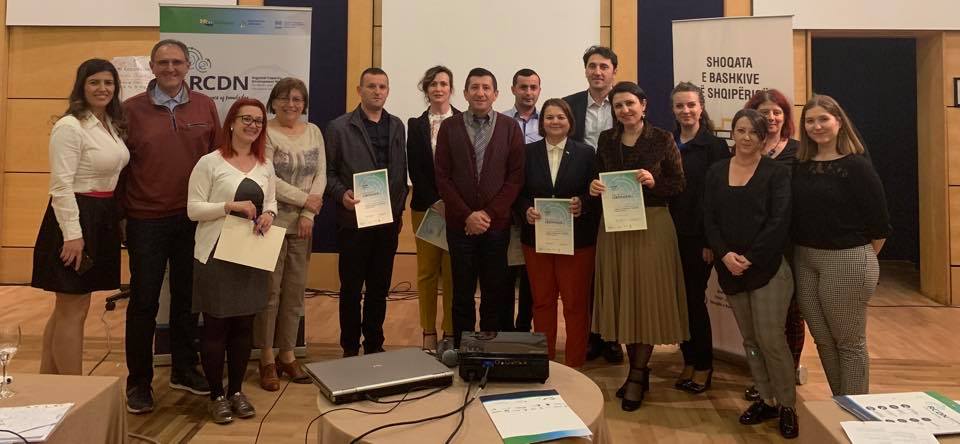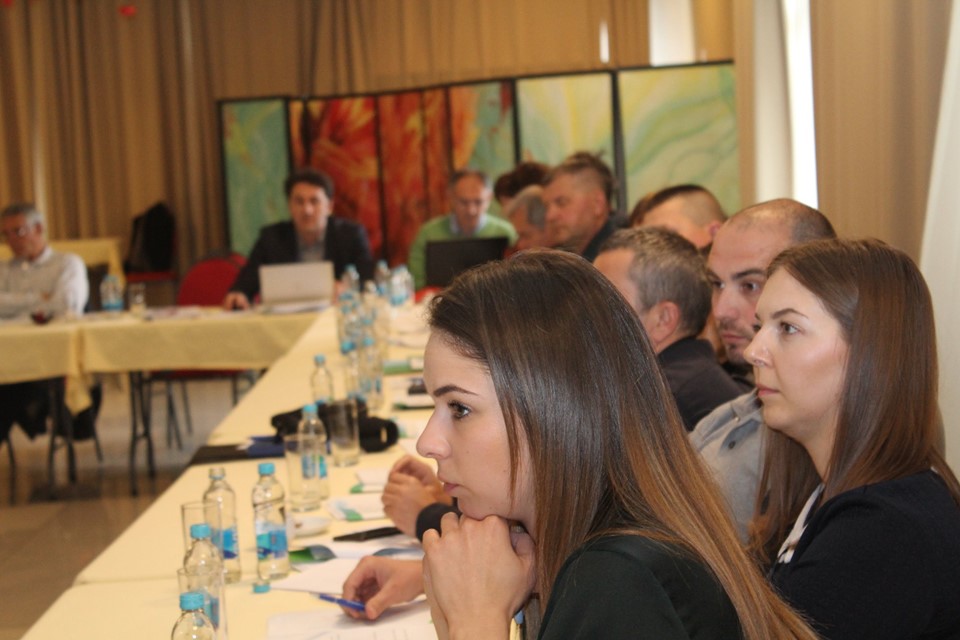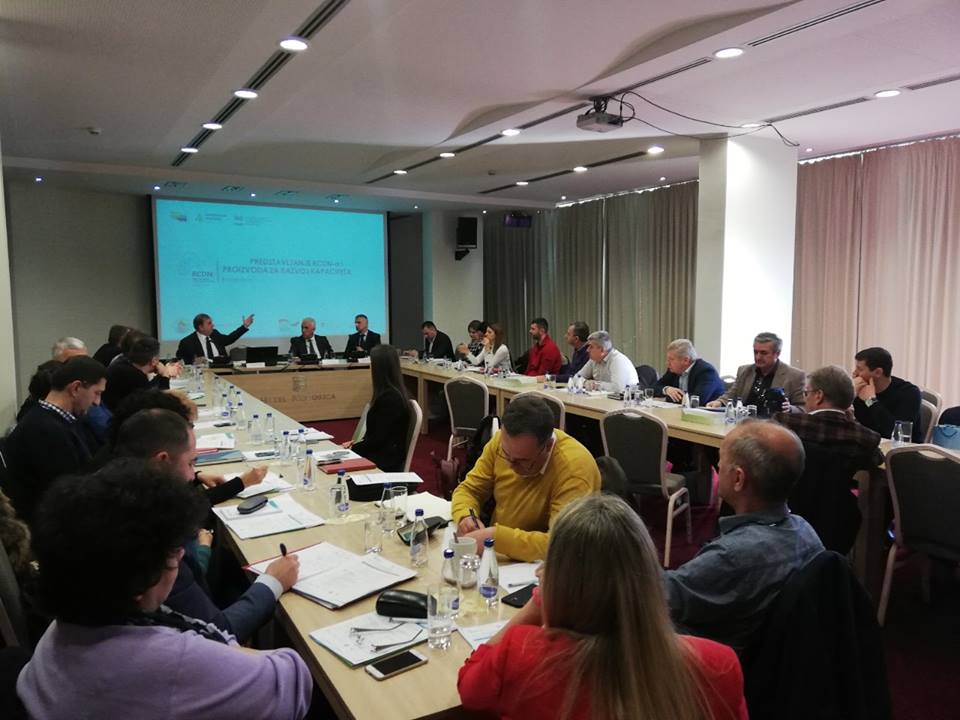Operation of water utilities during the COVID-19 pandemic is characterised by extra tasks, decreased collection rate and change in service demand. Methodology for calculating and covering real costs resulting from the pandemic needs to be defined and support by local government units needs to be ensured in that regard.
Impacts of COVID-19 pandemic on financial performance of water utilities and support by their local government units was identified by participants of the first RCDN webinar as crucial topic for further discussion. The second RCDN webinar was therefore organised on 9 June 2020 aiming at the exchange amongst local government units and water utilities from Bosnia and Herzegovina, Montenegro, North Macedonia and Serbia on financial aspects of service providers’ performance in light of COVID-19 pandemic and good practices on how local government units could support their water utilities to mitigate negative impacts. More than 60 participants focused on financial sustainability challenges resulting from COVID-19 pandemic and experiences in good cooperation and support of local stakeholders.
The keynote speakers were representatives from water utility, local government unit, association of local government units and association of water utilities from all four target countries: Mr. Filip Makrid, Director of Podgorica Water Utility in Montenegro, Mr. Todor Efremov, Secretary of Kavadarci Municipality in North Macedonia, Ms. Andreja Gluščević, RCDN Focal Point from UTVSI in Serbia and Mr. Aco Pantić, Secretary General of Republika Srpska Association of Local Government Units in Bosnia and Herzegovina.
The topic was introduced by Mr. Miodrag Kolić, RCDN Quality Manager from NALAS who moderated the webinar. He highlighted that high quality of service delivery is reported in the whole region despite extraordinary circumstances. Yet, negative financial impact is evident, collection rate is lower whilst service demand is increased.
The thematic session was opened by Ms. Gluščević who presented a survey conducted by UTVSI with feedback from 76 local government units in Serbia. The survey showed significant decrease in collection rate during March and April 2020 in comparison with the same period last year as well as different patterns of water consumption distribution between industry and households during the pandemic. Almost 80% of interviewees reported extended scope of work that was not planned and 60% of them reported decrease in planned activities such as water meter reading and replacement.
After presenting the comparative analysis of revenues in March, April and May for 2019 and 2020 and significant efforts and results in terms of process digitalisation achieved by Podgorica Water Utility, Mr. Makrid recommended that the digitalisation is introduced in all business processes. He strongly advocated for water service sector reform that shall include the introduction of water services regulator, tariff policy equalisation and establishment of a sector intervention fund.
Challenges faced by local government units in Republika Srpska were presented by Mr. Pantić who also offered measures and recommendations proposed to address them such as the need for local stakeholders to develop more detailed and synchronised operational plans to ensure more efficient response to crises. He particularly underlined that the current crisis confirms the need for urgent water service sector reform and need for local government units to intensify advocacy efforts towards higher governmental levels to make the water service sector sustainable and resilient to next crises.
Mr. Efremov shared experience on how Kavadarci Municipality responded to the COVID-19 crises and its good response to mitigate its negative financial impacts in the community. Participants also learnt that local government transfers towards the water utility in Kavadarci are ongoing as planned and no local institutions are late with payment of water services.
In the discussion session of the webinar that was moderated by Ms. Vesna Muslić, RCDN Marketing Manager from Aquasan Network in BiH, participants were interested to know on how to proceed with contracts signed between the water utilities and Regional Waterworks in Montenegro in light of announcements of failing touristic season. Whilst these contracts were signed beforehand for the same water quantities as in 2019, they are likely to be financially detrimental for water utilities because billed water volumes are expected to be lower as a result of lower number of tourists. Key note speakers also reflected on questions relating to local government transfers to water utilities as a result of lower revenues, good models for cooperation between local governments and water utilities and lessons learnt that will help for being better prepared to respond to potential crisis.
The conclusions of the webinar are:
- In response to the COVID-19 pandemic and public health protection measures, water utilities have undertaken additional tasks that are not defined in their action plans with reduced collection rate and change in service demand.
- Methodology for identifying and calculating real costs incurred by water utilities as a result of the COVID-19 pandemic and extra services provided to community need to be defined.
- Models for covering financial costs resulting from the COVID-19 pandemic need to be proposed to ensure uninterrupted financing of essential services in community i.e. delivery of water and wastewater services.
- National and local government measures aimed to support economic sector in overcoming financial difficulties need to be adjusted and applied for water utilities as well.
- Local crisis management plans need to be developed and improved by taking into account COVID-19 experiences with measures for ensuring financial liquidity of water utilities under such circumstances.
- The need for reforming the water service sector i.e. water supply and wastewater collection and treatment services shall be promoted to ensure long-term financial sustainability of water utilities and better service delivery in line with the EU Water Framework Directive.
- New procedures and technologies need to be introduced for water utilities to enable business continuity and service delivery during crises such as procedures for human resource rationalisation in relation to labour force protection, new working models (e.g. home office), digitalisation of work processes and collection service, etc.
The second opportunity for virtual discussion amongst RCDN partners and beneficiaries was assessed as very successful by participants. Several topics, including impact of the COVID-19 pandemic to WWTP operation and improved crisis management, were already identified as topics to be discussed at next webinars.




